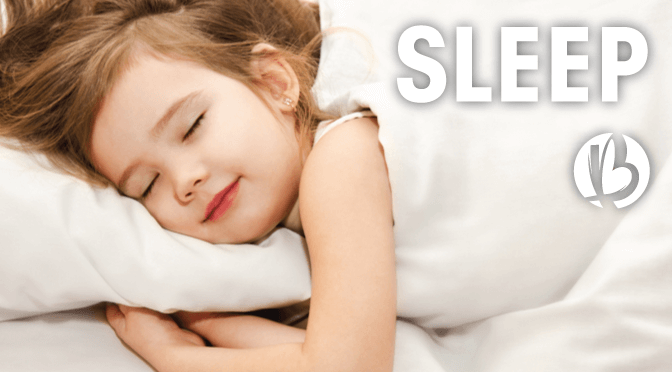Healthy Kids Challenge Part 4: Sleep
By Kate Horney
I believe that healthy kids are raised by healthy moms. As parents, we play a key role in our children’s choices and behaviors.
That’s why I’m excited to have my good friend and pediatrician (plus a mom herself), Dr. Rach join us on the blog to share about some healthy habits that we can work on making a part of our children’s lifestyles.
Not sure where to start? Let’s make it easy and begin with some essential new habits that will revolutionize your children’s health.
Catch up on the healthy kids habits that you’ve missed:
Part 1: Food
Part 2: Hydration
Part 3: Exercise
Healthy Kids Challenge Part 4

Today we’re talking about sleep for children as it directly impacts their mental and physical development.
Sleep is very important to kids’ well-being. The link between a lack of sleep and a child’s behavior isn’t always obvious. When adults are tired, they can be grumpy or lack energy, but kids can become hyper, disagreeable, and have extreme changes in behavior. In addition, kids can have a harder time sleeping if they’re overtired, making consistent rest very important.
According to the National Sleep Association, here are the recommended sleep times for children as well as some tips for a better nights rest.
Toddlers
- 11-14 hours of sleep over 24 hours, including both naps and bedtime.
- Maintain a daily sleep schedule and consistent bedtime routine. The routine might be 5-30 minutes long and include calming activities such as reading a story, bathing, and listening to soft music.
- Make the bedroom environment the same every night and throughout the night.
- Set limits that are consistent, communicated and enforced.
- Encourage use of a security object such as a blanket or stuffed animal.
Preschoolers (3-5 years)
- Preschoolers typically sleep 11-13 hours each night and most do not nap after five years of age.
- Have a relaxing bedtime routine that ends in the room where the child sleeps.
- Child should sleep in the same sleeping environment every night, in a room that is cool, quiet and dark – and without a TV.
School-aged Children (6-13 years)
There is an increasing demand on their time from school (e.g., homework), sports and other extracurricular and social activities. In addition, school-aged children become more interested in TV, computers, the media and Internet as well as caffeine products – all of which can lead to difficulty falling asleep, nightmares and disruptions to their sleep. In particular, watching TV close to bedtime has been associated with bedtime resistance, difficulty falling asleep, anxiety around sleep and sleeping fewer hours.
- Children aged six to 13 need 9-11 hours of sleep.
- Teach school-aged children about healthy sleep habits.
- Continue to emphasize need for regular and consistent sleep schedule and bedtime routine.
- Make child’s bedroom conducive to sleep – dark, cool and quiet.
- Keep TV and computers out of the bedroom.
- Avoid caffeine.
Teens
Teens need about 9 hours of sleep per night, but many don’t get it. Early school start times on top of schedules packed with school, homework, friends, and activities mean that many are chronically sleep deprived.
Sleep deprivation adds up over time, so an hour less per night is like a full night without sleep by the end of the week. Among other things, a lack of sleep can lead to:
- being less attentive
- inconsistent performance
- short-term memory loss
- delayed response time
This can lead to anger problems, trouble in school (academically and with teachers and peers), the use of stimulants like caffeine or energy drinks to feel more awake, and car crashes due to delayed response times or falling asleep at the wheel.
Ideally, a teen should try to go to bed at the same time every night and wake up at the same time every morning, allowing for at least 9 hours of sleep.
In a Stanford University Study athletes slept 10 hours a night instead of their usual 6 hours for 5-6 weeks. They saw an improvement in speed, accuracy, as well as physical, mental and emotional wellbeing.
Adults
Just as sleep is important for our children, it’s also important for us moms! Here are 5 tips to help you sleep better.

Dr. Rach is an advocate for children’s health and nutrition. She’s a mother of four girls and the creator of Kidz Shake.
Read more about Kidz Shake and why we love it!
Healthy kids need healthy moms! To instantly download nutritious recipes and monthly fat burning workouts, join the BeyondFit Life Club!
BeyondFit Mom may be compensated in exchange for featured placement of certain sponsored products and services, or your clicking on links posted on this website. Thank you for supporting BeyondFit Mom.
